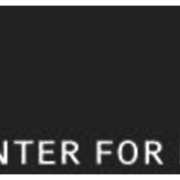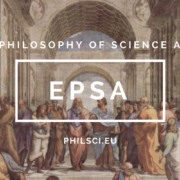Submitted by Anne Sophie Meincke (University of Vienna).
I PraeDoc positions at the Department of Philosophy at the University of Vienna
The University of Vienna (20 faculties and centres, 178 fields of study, approx. 9.800 members of staff, about 90.000 students) seeks to fill the position from 01.10.2020 of a
University Assistant (prae doc)
at the Department of Philosophy
Reference number: 10969
The advertised positions are located at the Vienna Doctoral School of Philosophy, Department of Philosophy. Starting in Oct. 2020, the Vienna Doctoral School in Philosophy (VDP) unites the research strengths of the Department of Philosophy of the University of Vienna to create an international hub for doctoral research in academic philosophy.
The VDP supports research from all major domains of philosophical research. Moreover, the VDP endorses and promotes a plurality of different philosophical traditions, methods, and forms of thought. The VDP is committed to diversity in its composition. The VDP fosters cross-fertilization between research projects in different fields and in different traditions, and it gives its doctoral researchers a competitive edge by providing them with broad areas of competence as well as in-depth specialization. The VDP’s ambitious profile builds on the unusually high number of internationally leading VDP faculty members from a wide variety of philosophical domains and schools of philosophical research.
Duration of employment: 4 year/s
Extent of Employment: 30 hours/week
Job grading in accordance with collective bargaining agreement: §48 VwGr. B1 Grundstufe (praedoc) with relevant work experience determining the assignment to a particular salary grade.
Job Description:
The successful candidates will pursue their independent doctoral research project in any subfield of philosophy within a structured PhD program in cooperation with at least one VDP supervisor at the Department of Philosophy of the University of Vienna in accordance to the VDP Code of Good Practice.
The successful candidates will participate in research and administration (incl. participation in publication projects, workshop organization, and VDP self-organized activities).
The successful candidates will develop their doctoral thesis project in cooperation with their supervisor(s) and their Thesis Advisory Committee. We expect the successful candidate to sign a doctoral thesis agreement within 12-18 months.
Participation in teaching and independent teaching of courses as defined by the collective agreement.
Applications are invited from all subfields of philosophical research (esp. Theoretical Philosophy, Practical Philosophy, History of Philosophy).
Profile:
– MA in Philosophy (alternatively: MA in a subject that is relevant to the proposed research topic with a BA or substantive coursework in Philosophy)
– Excellent command of written and spoken English
– Ability to carry out independent research and to work in a team
The University of Vienna strives to promote equality in academia. In light of recent findings on implicit bias, we kindly ask applicants to submit their application in an anonymized form.
The applicant must select at least one potential supervisor; a list of the potential supervisors, together with their fields of specialization, can be found at:
https://vd-philosophy.univie.ac.at/faculty/
Your application should include:
– A letter of motivation (anonymized)
– An academic curriculum vitae (anonymized)
– List of publications, evidence of teaching experience (if available)
– A short doctoral project proposal (2000 words max., excluding bibliography; anonymized)
– A writing sample (5000 words max.; anonymized)
– A separate document with the applicant’s general information (incl. the names of 1-2 potential VDP supervisors)
– Degree certificates (relevant undergraduate and graduate transcripts and diplomas)
– Two letters of recommendation, to be sent by the referees directly to jobcenter@univie.ac.at (Reference number: 10969)
Research fields:
Main research field
Special research fields Importance
Philosophy, Ethics
Philosophy MUST
Applications including a letter of motivation (German or English) should be submitted via the Job Center to the University of Vienna (http://jobcenter.univie.ac.at) no later than 30.08.2020, mentioning reference number 10969.
For further information please contact Sailer, Katherina +43-1-4277-46401.
The University pursues a non-discriminatory employment policy and values equal opportunities, as well as diversity (http://diversity.univie.ac.at/). The University lays special emphasis on increasing the number of women in senior and in academic positions. Given equal qualifications, preference will be given to female applicants.
Human Resources and Gender Equality of the University of Vienna
Reference number: 10969
E-Mail: jobcenter@univie.ac.at
Privacy Policy of the University of Vienna
https://univis.univie.ac.at/ausschreibungstellensuche/flow/bew_ausschreibung-flow;jsessionid=DB70D9FDB462E09976090AEA3E3FAE22?_flowExecutionKey=_c39491053-6BB7-1D89-8FE3-A9E56BC1001F_k684A320F-6420-A59A-F0E3-42DAE0B0AB0D&tid=79893.28&_language=en
II Coordinator position for the Vienna Doctoral School in Philosophy (VDS)
The University of Vienna (20 faculties and centres, 178 fields of study, approx. 9.800 members of staff, about 90.000 students) seeks to fill the position as soon as possible of a
Coordinator
at the Faculty of Philosophy and Education
Reference number: 10980
The open position is located at the Faculty of Philosophy and Education of the University of Vienna, Austria. The successful applicant will work together with the Directors towards establishing the newly funded Vienna Doctoral School in Philosophy (VDP) as a hub of academic research in philosophy, and an inclusive and supportive work environment. Information on the VDP is available on https://vds-philosophy.univie.ac.at/.
Duration of employment: 4 year/s
Extent of Employment: 40 hours/week
Job grading in accordance with collective bargaining agreement: §54 VwGr. IVa with relevant work experience determining the assignment to a particular salary grade.
Job Description:
The tasks of the successful candidate will be to coordinate and implement the measures and structures of the doctoral school, especially the following:
– Coordination of the constitution and meetings of the Thesis Advisory Committees of the VDP doctoral researchers,
– Advisory service for the doctoral students, e.g., support of the doctoral researchers with the set-up of self-organized activities (DocWIP etc.),
– Coordination and organization of the VDP activities, esp. the VDP invited lecture series, workshops, and the VDP summer school,
– Public relations, networking for the VDP incl. content generation and maintenance of the VDP webpage; coordination of the measures for quality assessment, in coordination with the central services of the University of Vienna,
– Administrative duties, esp. the administration of the VDP budget. Various administrative tasks, such as the international dissemination of advertisement for open VDP doctoral researcher positions, coordination of the allocation of travel grants etc., room management for the VDP activities,
– Coordination of the various bodies of the VDP in cooperation with the student service center and the Dean’s office,
– 20 % (8 hours per week) may be used for own scientific projects (research, publications).
Profile:
– Completed PhD in any area of philosophy,
– Interest in, knowledge of, and preferably international experience with the structure and organization of current doctoral research in philosophy at the international level; interest in new developments and best practices in this area.
– Solid language skills in English and German,
– Excellent computer skills. The Coordinator will have to work with SAP and Typo3 and special programmes of University of Vienna; experience with these tools or other content management and accounting systems is preferred.
– Reliability, capacity for teamwork as well as for independent work under sometimes stressful conditions,
– Research project in philosophy.
Applications should include the following:
– A letter of motivation that elaborates on the candidate’s views on and own experience with good practices in doctoral training in Philosophy
– CV
– Academic certificates
– Research project (2000 words max. [not counting bibliography])
– Writing sample (preferably, a published paper or book chapter)
– Relevant transcripts and diplomas
– Two letters of recommendation, to be sent by the referees directly to dekanat.philbild@univie.ac.at (Subject: JC10980, Letter of recommendation, Name).
Applications including a letter of motivation (German or English) should be submitted via the Job Center to the University of Vienna (http://jobcenter.univie.ac.at) no later than 30.08.2020, mentioning reference number 10980.
For further information please contact Schmid, Hans Bernhard +43-1-4277-46488.
The University pursues a non-discriminatory employment policy and values equal opportunities, as well as diversity (http://diversity.univie.ac.at/). The University lays special emphasis on increasing the number of women in senior and in academic positions. Given equal qualifications, preference will be given to female applicants.
Human Resources and Gender Equality of the University of Vienna
Reference number: 10980
E-Mail: jobcenter@univie.ac.at
Privacy Policy of the University of Vienna
https://univis.univie.ac.at/ausschreibungstellensuche/flow/bew_ausschreibung-flow;jsessionid=76BC23E2AF0603EE0DFBC90857C2B745?_flowExecutionKey=_cABF3C42A-D9F5-FB50-5214-A122E9FD022D_kBDFCFB96-C617-F6E3-0CFE-04414F4CB78F&tid=79988.28&_language=en



















